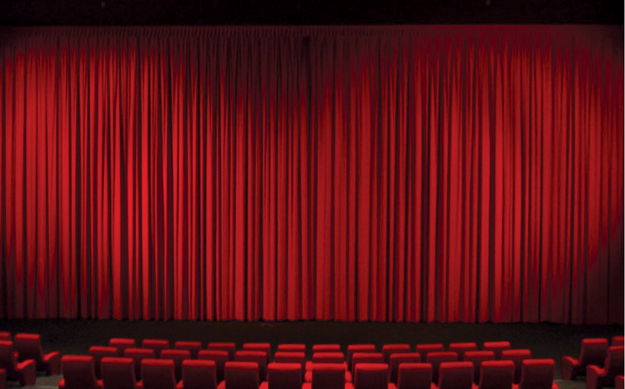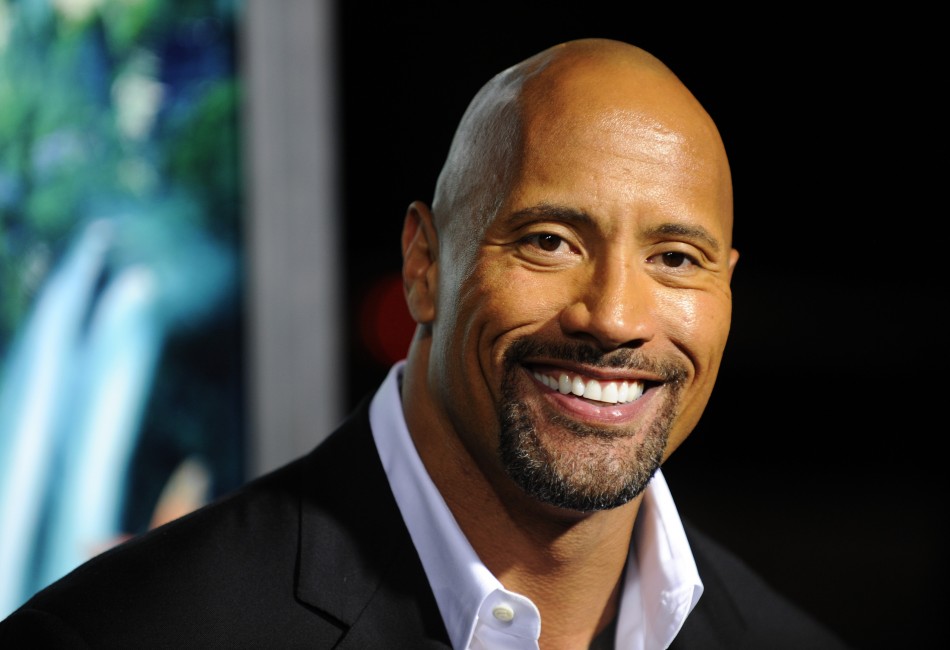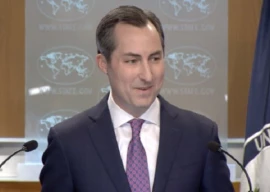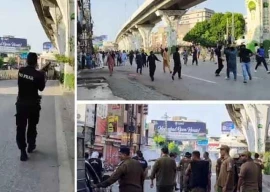
This was stated by Professor Bryan Reynolds, the Chancellor’s Professor and Claire Trevor Professor of Drama at the University of California, while delivering a lecture on “Performance Activism, Transversal Potentialities” at the English department of the International Islamic University Islamabad (IIUI).
“The lecture is on my work with Mark LeVine and our collaborations with the Transversal Theater Company and local artists in various countries in the Middle East, Africa, and South Asia in the creation of politically engaged performing arts under oppressive societal structures and in conflict zones,” Professor Reynolds stated.
Dilating on his subject, he stated that a child embodies aspects of alterity (the state of being other or different; otherness) and permits certain liberties based on assumptions about its developing social identity and the limits it presents with regards to sanctioned subjectivation.
He explained that contemporary cultural representations of childhood often reveal fissures in the logic and assumptive frameworks they reciprocally attempt to support.
Prof Reynolds went on to argue that without assuming an ethical position on children’s roles within this spectrum, we can observe that the possibility of rupturing dominant social systems accompanies the child’s cognitive, emotional, and physical development.
“To function in society, one must have spent time at least rehearsing, typically with much play, society’s possible unravelling,” he said.
“I want to argue that, rather than containing this notion as a ‘closed-off space/time in which alterity is stripped and adult subjects are created’, childhood’s condition as necessarily subversive — a fugitive rehearsal within official culture — is rich with alternative conceptions, fluctuations, and performances of subjectivity, and thus offers much potential for children as vanguards of cultural resistance and change,” Prof Reynolds enunciated.
IIUI Rector Dr Masoom Yasinzai observed that theatre has great social significance.
“It has the potential to teach through showing rather than telling,” he said, adding that human beings, especially in their childhood, learn a lot of things through observation.
“They imitate others and imitation of action, in the words of the great Greek philosopher Aristotle, is the basis of drama,” he said.
He went on to say that if they want to instil positive values in society, theatre can be a good vehicle for this and vice versa.
Referring to Prof Reynold’s work and oppression in the world especially the children’s protest and plight in Kashmir, Dr Yasinzai said that the world is currently passing through a difficult phase in its history.
“There are wars, occupations, bloodsheds. There are oppressed and oppressors. As practitioners of theatre, it is the duty of directors and artists to highlight the oppressor as the oppressor and the oppressed as oppressed,” the IIUI rector said, adding that an example is what is happening in Kashmir these days.
“It has almost been a month that the people of Kashmir have been living under the curfew,” he said, lamenting that the world has almost turned a deaf ear to the plight of Kashmiris.
“No one is paying any attention to their screams, children are being blinded by the pellet guns,” he said, hoping that Prof Reynolds too would highlight the plight of Kashmiris as he has done for Palestinians thorough his play Nabi Saleh that has shown the plight of people of Palestine.
Later, a question and answer session was held where Prof Reynolds was asked about his play Nabi Saleh, protest tourism and the plight of being in oppression in front of other nations.
Later, Prof Reynolds was presented with the university’s crest. IIUI Dean Faculty of Languages and Literature (FLL) Dr Ayaz Afsar, along with Dr Sheeraz Dasti, Dr Munazza Yaqoob, Dr Abid Masood and other faculty members attended the talk with students.
Published in The Express Tribune, September 9th, 2019.
1732603002-0/lamar-(4)1732603002-0-405x300.webp)
1720420084-0/brad-pitt-(2)1720420084-0-165x106.webp)




1732600231-0/BeFunk_§_]__-(50)1732600231-0.jpg)










COMMENTS
Comments are moderated and generally will be posted if they are on-topic and not abusive.
For more information, please see our Comments FAQ